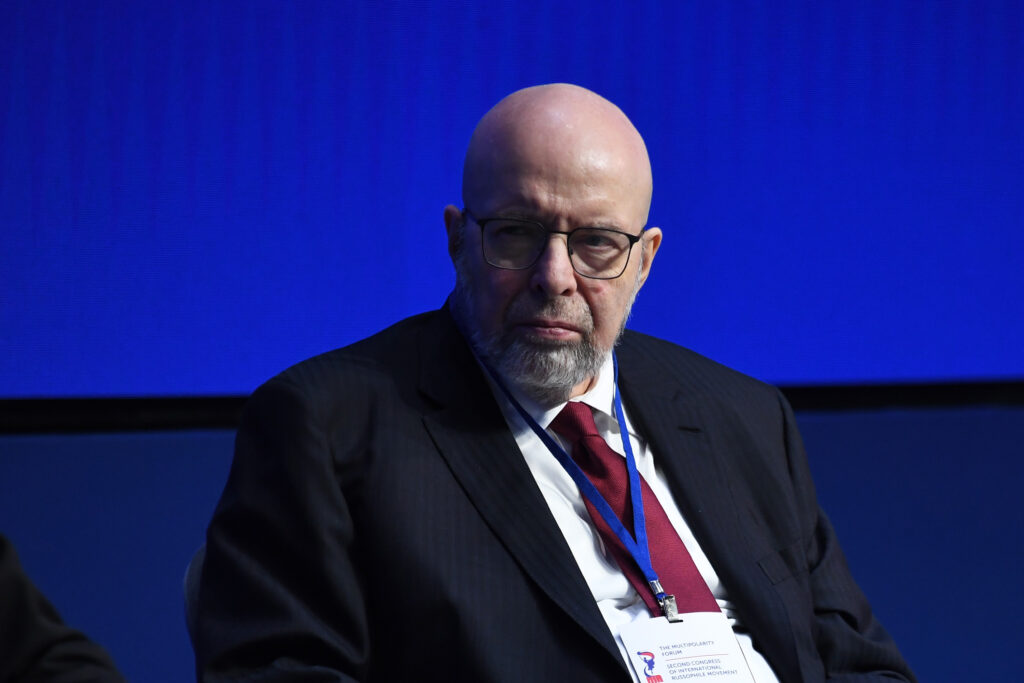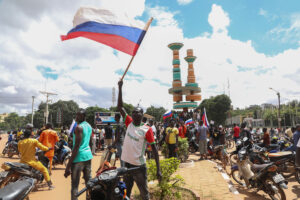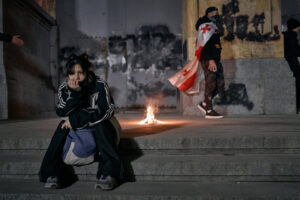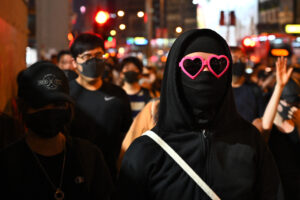Simes Agonistes
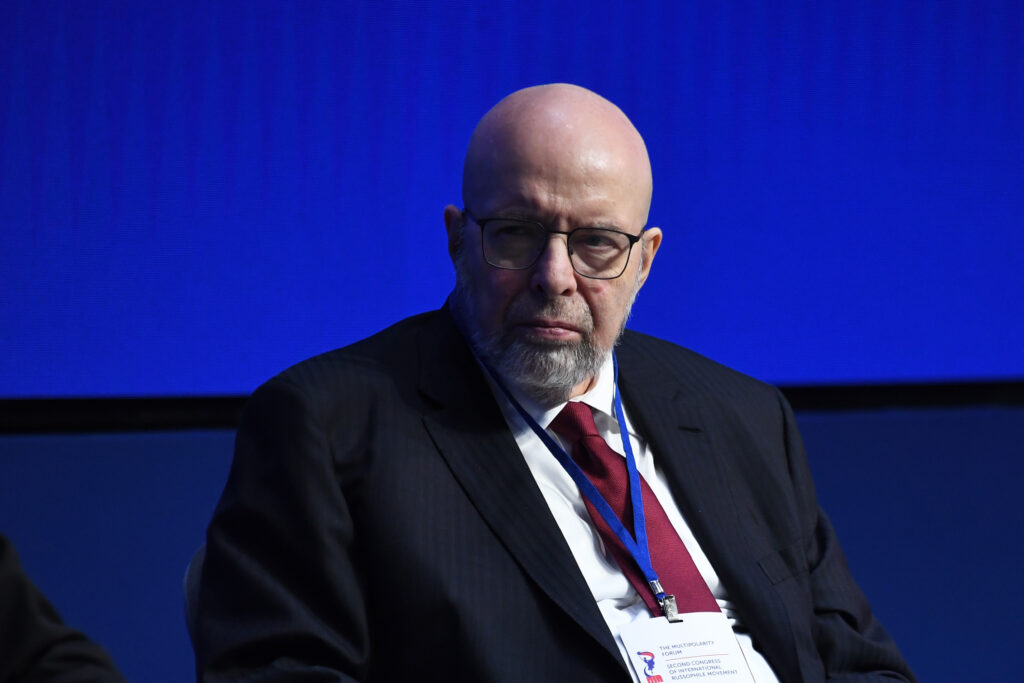
Earlier this year I wrote a piece for the New Yorker about military analysts and their arguments over the war in Ukraine. Why did so many people think that Russia would take Kyiv in a matter of days? Was it an area studies issue, an overreliance on quantitative methods, a credulity about Russian propaganda? What conclusions, if any, could we draw for the rest of the war from this initial error? And so on.
One of the military analysts I spoke with spent a lot of time on Twitter. He used it to find photos and videos from the battlefield, gauge public opinion in Ukraine, and get answers to questions about his own work. As a result, he was deeply concerned about all the mistakes, misinterpretations, and bad actors on the platform. He was willing to talk about the war in Ukraine. But what he really wanted to talk about was Twitter.
I thought about this analyst when I saw the news, in September, that Dimitri Simes, longtime president of the Center for the National Interest think tank in Washington, D.C., had been indicted by the Biden Justice Department for sanctions violations and money laundering, chiefly for his work as a talk show host on Russia’s most popular TV station, Channel One. There was war, I thought, and then, as my military analyst well knew, there was info-war. Simes was the latest casualty.
Who was Dimitri Simes? He had come to the U.S. from Moscow as a political émigré in 1973 and quickly—some said, too quickly—established himself as an authority on the Soviet Union. He worked at the Carnegie Endowment for International Peace, published numerous op-eds on Soviet affairs, and appeared, with his beard, large glasses, and almost theatrically thick Russian accent, on MacNeil/Lehrer and Ted Koppel’s Nightline. He became close to Richard Nixon, who, in his post-presidential years, returned to public life as a foreign policy guru, with Simes’s help. Together, in 1994, they founded the Nixon Center for Peace and Freedom, with Simes as president, which became the Center for the National Interest in 2011, after a dispute between Simes and some of Nixon’s descendants. (The descendants thought Simes was soft on Russia; Simes thought the descendants were soft on the Watergate break-in.)
Simes’s positions were Nixonian, or Kissingerian, or Mearsheimerian, that is, they tended to follow the realist canon as it pertained to Russia. Russia was a powerful country, went the idea, but not so powerful that it could ever again claim to be the equal of the United States. It should be treated respectfully, but neither over-indulged nor (especially) over-lectured. Simes was often critical of Russian behavior, but at least as critical of American overreach. He tended to underestimate or underplay Russian ill intent. Like Dmitri Trenin, another prominent commentator on Russian affairs who has recently taken a heel turn—coming out, full-throatedly, for the Russian invasion of Ukraine—Simes sometimes described the Russia that he wanted to see rather than the Russia that really was.
One of Simes’s activities in Washington was to get people together and make introductions. This was a normal think tank activity. Because he traveled frequently to Russia and kept up many contacts there (again, some said, an awful lot of contacts), he happened to be particularly good at making introductions between Americans and Russians. In the words of Josh Rogin of the Washington Post, “He is simply the Washington expert most well connected to Moscow.”
For reasons that were curious and somewhat bizarre, Simes got caught up in the Mueller investigation into Trump and Russia. He had organized a “foreign policy address” by candidate Trump at the Mayflower Hotel, in April of 2016, at which Trump said a few words that no one remembers and his future attorney general, Jeff Sessions, interacted briefly with the Russian ambassador, Sergei Kislyak. The Mayflower event led to Sessions recusing himself from the Trump-Russia investigation, appointing instead a special prosecutor. The special prosecutor, Robert Mueller, interviewed Simes and some of his associates and ended up devoting ten pages to them in his famous report. Simes was not accused of any wrongdoing; according to Mueller, he had advised Jared Kushner on Russian matters—mostly, as it happens, urging candidate Trump to stay away from talking about Russia, since the subject was so neuralgic.
Simes was also available for other Russia-related consultations. On the night after Trump won the election, someone from the Russian embassy in D.C. called Hope Hicks on her cell phone to pass on congratulations from Vladimir Putin. Hicks was skeptical, and asked Kushner how she could verify the person’s identity. “Don’t want to get duped,” she wrote him, according to the Mueller report, “but don’t want to blow off Putin!” Kushner decided they should get in touch with the Russian ambassador, whom he had possibly met at the Mayflower and promptly forgotten, and emailed Simes to ask the ambassador’s name. Simes provided the name (Kislyak). That, according to Mueller, was the extent of it. But the experience of the investigation and all the noise around it was bad for Simes and bad for the Center for the National Interest. It had to pay his legal fees, and its reputation was harmed. Politico ran a pretty nasty story surfacing many of the old allegations against Simes as a Kremlin agent. Some donors started reconsidering their level of support.
Simes defended his reputation in the press but also, in 2018, accepted a gig, in Russia, as one of the hosts of Bolshaya Igra—The Big Game—a lavishly produced talk show about geopolitics. On the show, he interviewed Russian and American political thinkers, including Harvard political scientist Graham Allison and former U.S. ambassador to Ukraine John Herbst, and tried to explain the workings of Washington to a Russian audience. To some, his work for Channel One was unacceptable and indecent, even in the comparatively mild (what Russians would call “vegetarian”) political climate of 2018. To others, Simes was doing a valuable service, at a time of extreme distrust between the U.S. and Russia, by presenting a moderate or accommodationist American viewpoint (as well as the less accommodationist viewpoint of a Russia hawk like Herbst) to a mass Russian audience.
In the spring of 2022, however, after the full-scale invasion of Ukraine, as various Channel One hosts spewed vile propaganda about the war, Simes continued to work there. According to the Justice Department indictment, Simes not only received substantial sums of money for this work, but also instructions on what to say about the war. Speaking to the Washington Post’s Rogin, Simes claimed that he was only doing his job as a journalist and political commentator. But he admitted that it hadn’t exactly been his dream to move back to Russia. “Sometimes in life you have to make unpleasant choices,” he said. Simes had made his. In the era of the info-wars, there are no bystanders. You choose the side that has been most congenial and has offered you the most money and an apartment and a personal chauffeur.
In all the post-election reflections on what went wrong—was Kamala Harris too close to Biden? Too far? Too quiet about Gaza? Would Bernie have won?—it seems to me like the least useful thread relates to the info-war and how we should fight it better. In 2016, some people called for a “Fox News of the left.” This time, we got one liberal commentator declaring—in a tweet viewed 8.6 million times, as of this writing—that rather than insist Harris should have gone on the Joe Rogan podcast, liberals needed to “BUILD THEIR OWN JOE ROGAN.” People, rightly, objected. We already have a Fox News of the left: MSNBC. A lot of good it’s done us! At some level, what these people are saying is that we need a liberal Donald Trump. But we do not need a liberal Donald Trump.
I have a Twitter friend who’s been fighting the info-war. He writes articles about how Russia is going to collapse and splinter into many parts, as the Soviet Union did before it, and as Russia itself did, briefly, during the Russian civil war. When I asked him once whether he really thought this would happen, he admitted that he didn’t. But his goal was to demoralize the enemy. “This is war,” he wrote me, “and we [writers] take part in it by words, since we have no other tools.” No one can avoid it, he went on. “We are all combatants: Soldiers, writers, even readers.”
Is this true? I find it hard to make an abstract argument against it. There is no such thing as neutral speech; every utterance comes from a subject position and has an effect in the world. And yet, when I look at the effects of the info-war on the discussions around Russia’s actual war on Ukraine, I am convinced that info-war is taking us in the wrong direction. The conversation has been poisonous. Putin’s invasion on February 24, 2022, as Michael Kimmage has argued, was radical. It went against a lot of what many analysts had previously thought the Putin regime to be. As a second-order effect, the invasion radicalized the conversation around Putin and Russia. We are still sorting through the consequences.
What is wrong with claiming that Russia is going to fall apart? Well, aside from the fact that it is unlikely to happen and that it would probably be undesirable if it did, there is also the danger that someone might believe you. I am far from claiming that my friend’s essays and tweets convinced the Biden Administration that Russia was on the brink of collapse—but someone did. At least, this is what I infer from what appears to have been their strategy in Ukraine since the fall of 2022. There was a belief, which was hard to distinguish from a wish, that eventually the sanctions would start to bite; eventually, the Russian war economy would overheat; eventually (this most wishful of all), the Russian people would rise up, somehow, and overthrow their leaders, who had started this terrible and wasteful and criminal war. Given enough time, it’s true, all this could very well happen. But Ukraine does not have infinite time. In fact, with Trump’s election, it may have run out of time entirely.
While this was going on—while, for two long years, the U.S. seemed to hope against hope that Russia would collapse—it was considered indecent or even traitorous to suggest that the U.S. should prioritize a negotiated solution. A precious few kept talking about negotiations, but most people just went silent. It was easier to do so. The result was that Donald Trump and J.D. Vance could come along and pretend to be the candidates of peace.
Which brings me back to Dimitri Simes. I think by the time the Mueller investigation was over, Simes himself had become radicalized. For occasionally advising a campaign that was in desperate need of advice, he was dragged through the mud for a year and a half by the “Resistance” media. In 2020, he endorsed Trump. In 2022, once the war began, he kept his job at Channel One and eventually resigned his post at his think tank. His position had become untenable.
Simes is not a poster child for victims of the information war. He has taken millions of dollars from the Russian government to continue toeing the line on Ukraine. I’m even willing to entertain the possibility that he was a Kremlin agent all along. But I think it is slightly more likely that for many years he was, as he told Rogin, “very loyal” to the U.S. and was articulating his beliefs, in the same way that John Herbst, supporter of greater aid to Ukraine, has articulated his. What we want is an information environment where these ideas can be discussed and debated, whether we like them or not.
I propose, in the info-war, a unilateral ceasefire. It will give us time to work on other things. What was it George Kennan said in his famous long telegram at the dawn of the Cold War? “Much depends on health and vigor of our own society. World communism is like malignant parasite which feeds only on diseased tissue.” In the era of Trump and Putin, let us look to ourselves. “We must have courage and self-confidence to cling to our own methods and conceptions of human society,” Kennan wrote. “After all, the greatest danger that can befall us in coping with this problem… is that we shall allow ourselves to become like those with whom we are coping.”
Keith Gessen is a professor of journalism at Columbia Journalism School, a contributing writer to The New Yorker, and the author of A Terrible Country, a novel.
